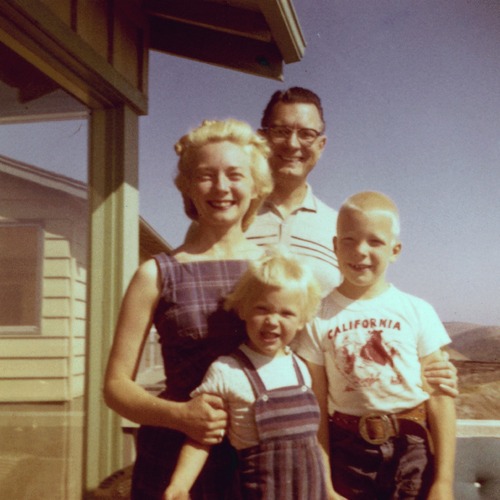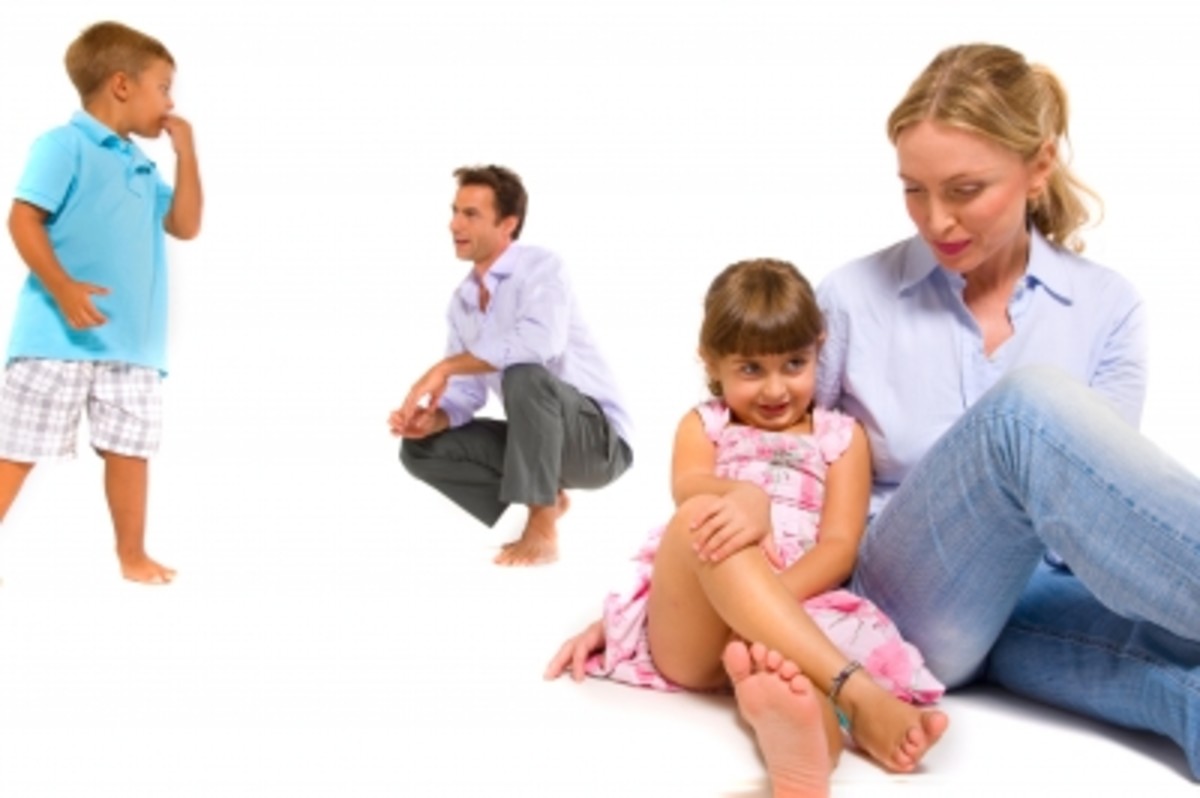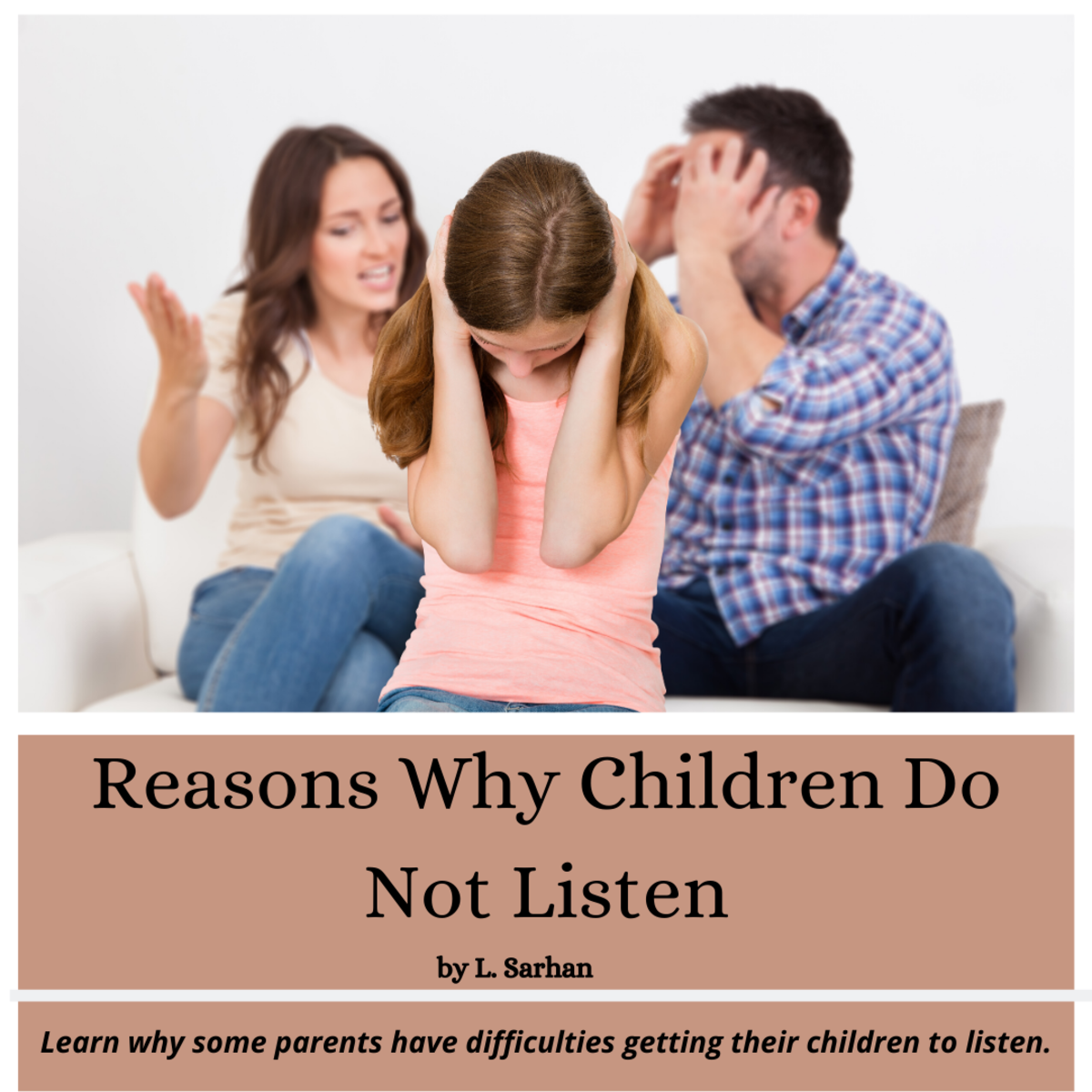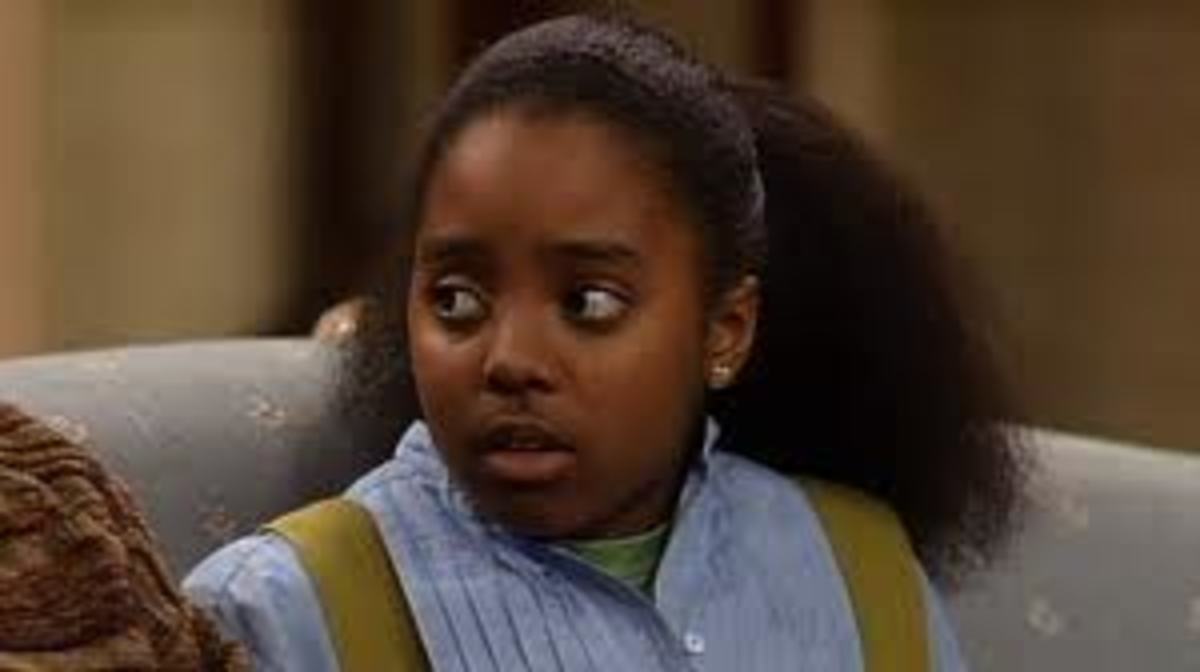Parenting Styles Are Not The Only Components Which Affect Children's Behavior

The Family Pot Is Brewing.......Look At All These Ingredients!
A parent's style of parenting a child/children has a prominent underlying effect on the latter. However, a parent's parenting style is not the only component that influences a child's behavior. There are other subsets of factors which influence a child's behavior such as his/her birth order, family size, and non-familial peer influences.
Of course, parenting styles affect children for the positive or negative. A child's first and main teachers are the parents. It is the parents who teach and impart familial and societal values to their child/children. It is also the parents who relay to their child/children either a good or poor image of themselves which eventually becomes self-fulfilling prophecies.
Parental attitudes toward a child often influences whether that child will ultimately succeed or fail in life. There are some parents who are unsupportive of their children, holding them in low regard for a variety of reasons ranging from personality traits and/or character traits which are diametrically opposed to the family construct. Other persons believe that their children are just appendages to bend to their will. Such parents emphasize blind obedience and conformity to their particular family construct.
Children reared by unsupportive parents often develop a low sense of self-worth. They feel like nonentities since their parents are never in their corner. There are still others who ignore their parents, developing their own self-esteem independent of their parents' approval or disapproval. Children raised by authoritarian parents learn that they are powerless. They also learn to be nonassertive and unimportant.
Besides that, such children tend not to develop any type of self-esteem as they were inculcated by their parents to always obey and to ask parental permission for the most insignificant matters. Like children raised in unsupportive homes, children of authoritarian parents become diffident and timid. However, there are other children who become highly defiant and antiestablishmentarian as a result of authoritarian parenting styles.
Then there are the overprotective parents who assert that they must give their children the perfect childhood and adolescence by protecting them from the negative aspects of life. These are the parents who demonstrates that the road to hell is often paved with the best of intentions. They portend that they love their children by shielding them out of harm's way. They want their children to never experience no type of frustration and angst. According to these parents, children exposed to frustration and angst will irrevocably damage their psyches. So these parents do almost everything they can for their children.
Well, these parents are doing their children a severe disservice. Such children have a low tolerance for frustration and other setbacks in life. They also become exceedingly dependent and risk avoiding children, adolescents, and young adults. They furthermore develop an entitlement mentality because they were considered to be precious entitles by their parents. Lastly, they have no concept of life and/or survival skills to think of. If their parents either died or withdrew their means of support, many of such children would become totally unhinged!
There are the democratic parents who believe that their children are an integral part of the household. They believe that they are raising adults and not children. Children in such household are expected to be participating members of the household. They learn skills depending upon their maturity level. They also learn to voice their opinions, use judgement, and to take intelligent risks in life. They furthermore know that mistakes and detours are a part of life and not the end of the world.
Besides parenting styles, birth order has an underlying effect on children's behavior. A child's place in the family constellation has a profound influence on his/her behavior. Oldest children are usually the second authority figures in their families besides the parents. By virtue of their ordinal position, oldest children have a higher and stricter standard of behavior than their younger siblings. Parents actually expect more from their oldest children than from their laterborn children.
This is because when the first child is born in the family, parents are usually inexperienced. Since they are inexperienced, they go through lengths to be the perfect parent. They want to the do the correct thing by their child and want to make the least mistakes as possible. This parental inexperience with the oldest child leads to a stricter and more exact parental style. The oldest child absorbs this parental strictness into his/her psyche. Many oldest children tend to be highly perfectionist in their behavior. They can be highly obsessed with achievement and being the best because that was imparted to them by their parents. Also, they had to be the example setters for their younger siblings.
Parents unknowingly ignore the middle child in the family. Oftentimes, he/she is just there. MIddle children are often sandwiched between the oldest and the youngest child. They are never appreciated for their individual selves but is always known as either A's oldest sibling and/or Z's youngest sibling. As Dr. Wayne Dyer jokingly stated in one of his lectures, so many parents actually either mix up and/or forget the names of their middle children. Usually by the time a middle child is born, parents are often more relaxed and less stressed than when they had their first child.
Furthermore, some parents are spending so much time with the younger child because he/she needs their attention and time more. This results in the middle child being left to his/her own devices. Many middle children learn to be the family go-between between older and younger siblings. They also learn to be diplomats and the family everyperson. They learn to be quite equitable people, learning to see all sides of a situation equally. They also learn to be democratic team players in the family and beyond.
By the time the youngest child is born, the parents are totally relaxed. They have the parenting game down to a "t". This is reflected in the youngest child having a wide leeway of behavior. He/she usually get away with things that older siblings would be chastised for. Parents are often more indulgent with the youngest child in the family because he/she is viewed as the baby. As you know, the baby can do no wrong!
Because of this indulgent parenting style, many youngest children are quite spoiled. Furthermore, they can be irresponsible as everything was done for them by their parents and older siblings. Many youngest children expect to be waited on and rescued because of this royal treatment by their family members. There are a few youngest children are nonassertive and quite hesistant of initiating any type of independent action on their part. That is nothing new as everything was always taken care off without any questions asked! Out of all the birth orders, it is the youngest child who usually has it the easiest.
Last of the birth orders but definitely not least is the only child. Only chlldren were never dethroned and have all the parental attention to themselves. However, since the only child is a firstborn magnified, he/she has all the parental expectations upon him/her. Parents of only children have high expectations and are exact as they were new parents when their child was born.
Parents are often very vigilant in raising their only children. They portend that since their child is the only one, they do not want anything to happen to him/her. They also want the best for their child and they will exert any means to guarantee this. Many only children have to live to the stringent standards of their parents because they exercised every opportunity to ascertain that their child have the best life possible. As you see, the only child receives parental attention, both positive and negative. If he/she does good, he/she is praised and is critiqued when he/she is less than perfect. All is fair in war and peace so to speak!
Besides the issue of birth order, family size also is influential regarding a child's behavior. Children from small families often receive more parental attention than children from large families. They also have more parental interaction. Children in small families are brought up to be highly individualized and to have a highly developed sense of self. In addition to that, the parenting style in small families are oftentimes loving and highly nurturing.
Contrast that to the parenting style in large families where children receive little or no parental attention. They also raise each other as parents cannot effectively raise a large number of children by themselves. Children in large families are taught to believe that they are not individuals but exist as part of a group. They also have a very poor sense of individualism and sense of self. Parenting styles in large families can be aptly described as harsher, more distant, and less nurturing.
Besides the abovementioned familial components which inffluence children's behavior, non-familial components are also factors regarding children's behavior. Peer relationships are one of the components in a child's life. In addition to parental and/or sibling relationships, peer relationships influences a child's behavior and development.
Children learn important lessons and social skills from their friends and peers. They learn important seasons in role playing and socialization from their friends and peers. Furthermore, friends and peers provide children with an environment which is different from that of their parents and/or siblings.
In conclusion, although parenting style is the main underlying component influencing a child's behavior, there are other factors and variables involved. Children are influenced by such familial outside of parenting styles such as birth order and family size. They are also influenced by non-familial aspects such as friendships and peer relationships.








